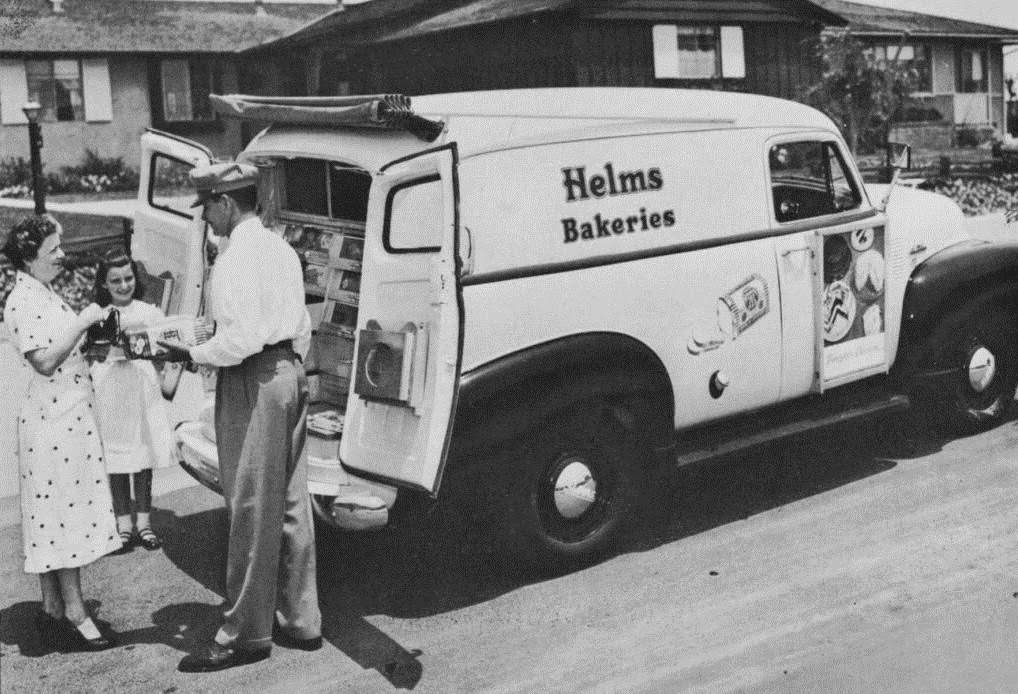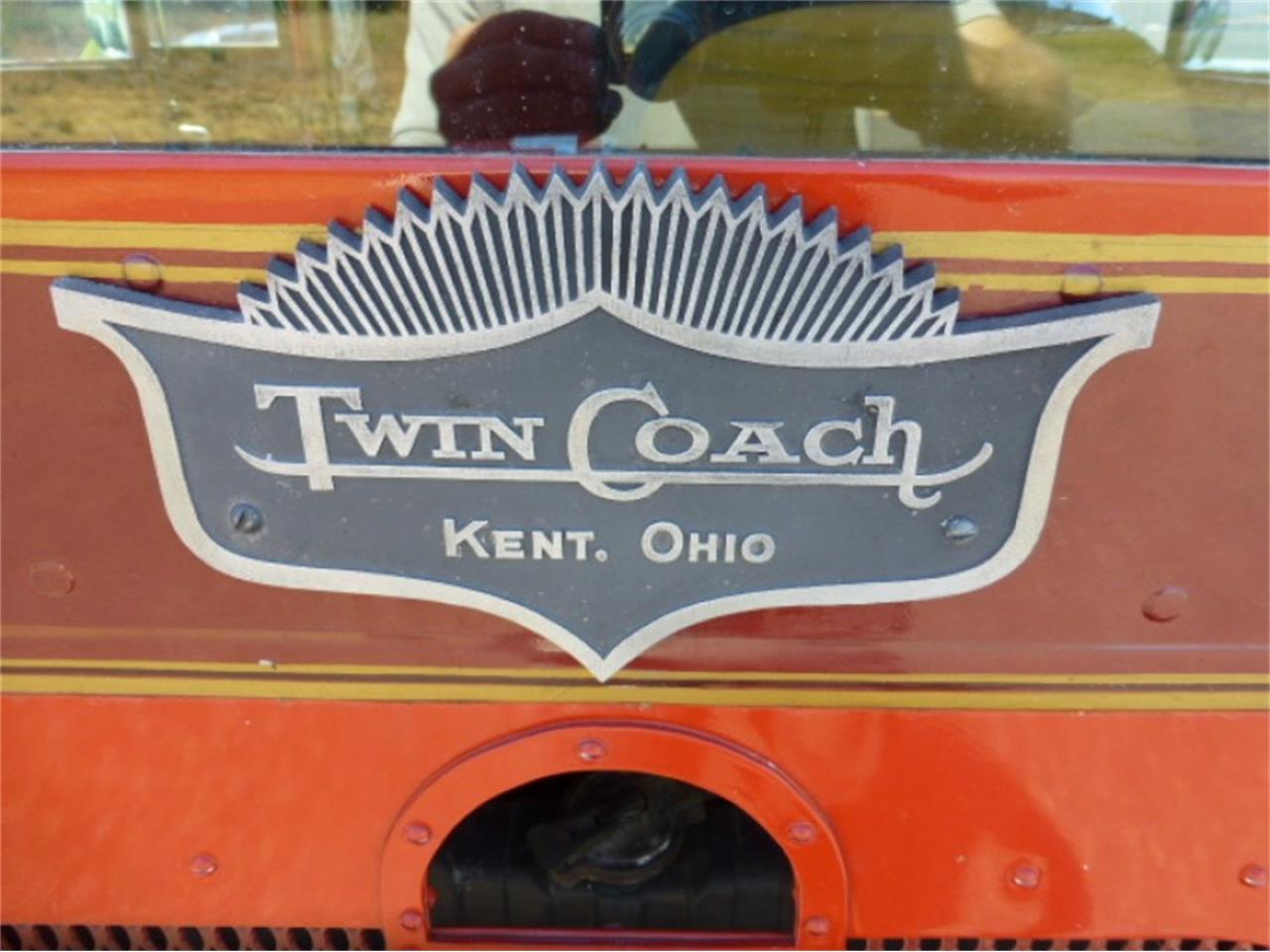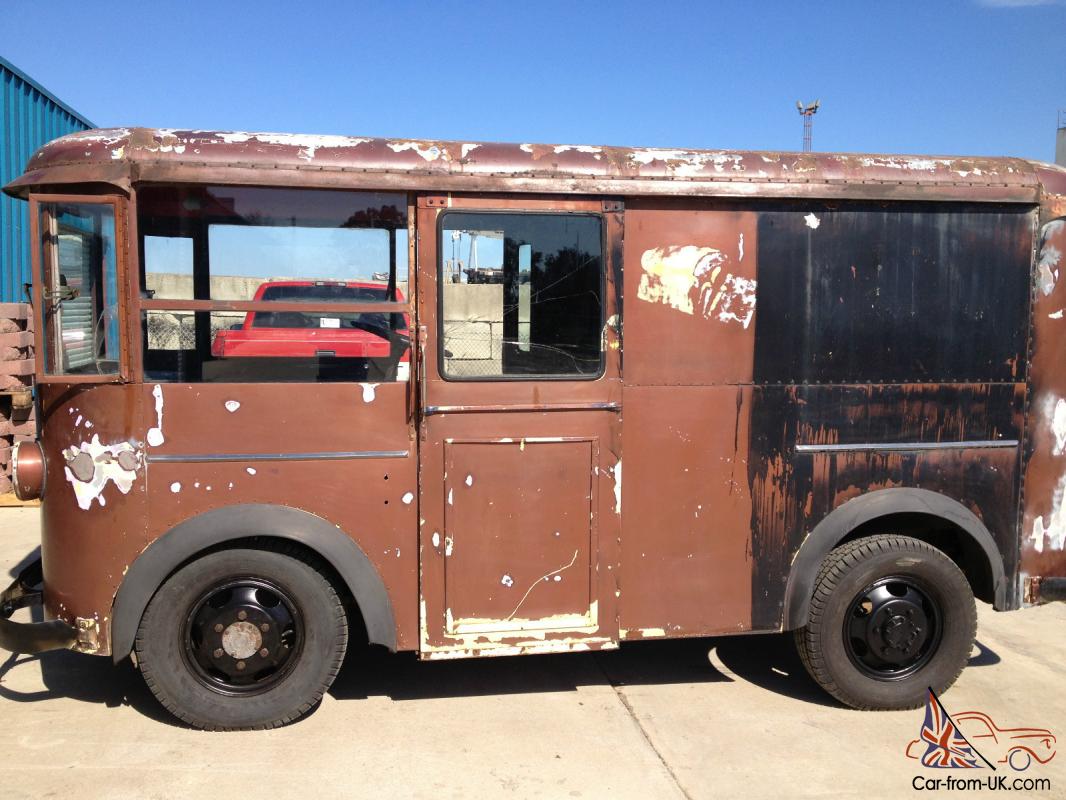Helms Bakery Trucks For Sale: A Comprehensive Guide to Owning a Slice of Americana types.truckstrend.com
Introduction: The Enduring Charm of Helms Bakery Trucks
Few vehicles evoke such a potent wave of nostalgia as the iconic Helms Bakery truck. For generations of Californians, and indeed, many across the United States, the distinctive yellow step vans were a beloved fixture of daily life, bringing fresh bread, pastries, and treats directly to their doorsteps. More than just delivery vehicles, these trucks were mobile bakeries, symbols of convenience, quality, and a bygone era of community service.
Helms Bakery Trucks For Sale: A Comprehensive Guide to Owning a Slice of Americana
Today, while Helms Bakery itself ceased operations in 1969, its legacy lives on, particularly through these charming and robust vehicles. For enthusiasts, collectors, entrepreneurs, and history buffs, a "Helms Bakery Truck for Sale" isn’t just an offer for a vintage vehicle; it’s an invitation to own a tangible piece of American history, a unique restoration project, or even a foundation for a distinctive modern business. Acquiring one of these classic beauties, however, requires more than just a passing interest; it demands an understanding of their historical context, the challenges of vintage vehicle ownership, and the specific considerations involved in finding, purchasing, and potentially repurposing these treasured relics. This comprehensive guide will delve into every aspect of Helms Bakery trucks for sale, offering insights and practical advice for anyone considering bringing one of these yellow icons back to life.
The Enduring Legacy of Helms Bakery Trucks
Helms Bakery, founded in 1926 by Paul Helms in Los Angeles, revolutionized bread delivery with its innovative door-to-door service. The company’s fleet of brightly colored yellow trucks, often adorned with the Olympic rings (Helms was the official bakery of the 1932 Los Angeles Olympics), became instantly recognizable. Drivers, known as "Helmsmen," would ring a bell to announce their arrival, and customers would flock to the truck, choosing from a wide array of freshly baked goods displayed inside.
What made these trucks so special? Beyond their charming appearance, they were designed for practicality and efficiency. Many were built on robust chassis from manufacturers like Divco, Ford, and Chevrolet, featuring custom-built step-van bodies that allowed drivers to stand and easily access the merchandise. Their sturdy construction and distinctive design made them highly durable, contributing to the fact that many still exist today. The sight and sound of a Helms truck represented convenience, quality, and a personal touch that is largely absent in today’s retail landscape. This deep-seated emotional connection is a primary driver for their continued desirability.
Why Consider a Vintage Helms Bakery Truck?
The reasons for seeking out a Helms Bakery truck are as varied as the individuals who pursue them:
- Collector’s Item & Historical Preservation: For automotive enthusiasts and historians, owning a Helms truck is about preserving a significant piece of Americana. These vehicles are increasingly rare and represent a unique chapter in commercial transportation and consumer culture.
- Unique Restoration Project: For those who enjoy the challenge of bringing a classic back to its former glory, a Helms truck offers a rewarding and highly visible project. The distinctiveness of the vehicle ensures it will stand out in any classic car show.
- Distinctive Mobile Business Platform: This is perhaps the most popular modern application. A vintage Helms truck, meticulously restored or tastefully modified, makes an unparalleled mobile food truck, coffee bar, boutique, or promotional vehicle. Its inherent charm and recognizable branding offer instant curb appeal and a memorable customer experience.
- Nostalgia & Personal Connection: Many buyers are driven by personal memories of the Helms truck visiting their childhood homes. Owning one allows them to reconnect with those cherished moments and share a piece of their past with new generations.
- Investment Potential: While not guaranteed, well-restored and rare vintage vehicles can appreciate in value over time, especially those with such a strong cultural resonance.


Types and Models of Helms Bakery Trucks
While all Helms trucks shared the iconic yellow livery and a general step-van form factor, there wasn’t a single "model." Helms Bakery utilized various chassis and body builders throughout its operational history (1926-1969).
- Chassis Manufacturers: Common chassis suppliers included Divco, known for their purpose-built delivery truck chassis and distinctive rounded bodies; Ford (especially F-series trucks converted into step vans); and Chevrolet (similarly adapted).
- Body Builders: Companies like Union City Body Company (UCC) and Boyertown Auto Body Works were prominent manufacturers of the step-van bodies mounted on these chassis.
- Variations: Over the decades, slight variations in body style, grill design, and interior layouts existed, reflecting changes in manufacturing and design trends. Some might have had more glass, different door configurations, or varied interior shelving. However, the core design—a walk-in delivery van with a distinctive front end—remained consistent. The most iconic are often the rounded Divco-bodied trucks, though many others were more square-bodied Ford or Chevy step vans.
Identifying the specific chassis and body type can be important for sourcing parts and understanding the vehicle’s original specifications.
Finding a Helms Bakery Truck For Sale: Where to Look
Due to their age and relative rarity, finding a genuine Helms Bakery truck requires patience and a focused search. They are not typically found on mainstream used car lots.
- Online Marketplaces & Classifieds:
- eBay Motors: Frequently lists vintage commercial vehicles.
- Craigslist: Local listings can sometimes unearth hidden gems, though caution is advised.
- Facebook Marketplace/Groups: Dedicated groups for vintage commercial vehicles, step vans, or specific brands (like Divco) are excellent resources.
- Classic Vehicle Auction Houses: Reputable auction houses specializing in classic cars and trucks occasionally feature unique commercial vehicles. Examples include Mecum Auctions, Barrett-Jackson, or local classic car auctions.
- Specialized Classic Vehicle Dealers: Some dealers focus on vintage trucks or commercial vehicles. A quick online search for "vintage step van dealer" or "classic commercial vehicle sales" might yield results.
- Automotive Forums & Enthusiast Clubs: Joining online forums or clubs dedicated to vintage trucks, Divco trucks, or even specific historical preservation societies can connect you with owners, restorers, and those looking to sell.
- Word-of-Mouth: Sometimes, the best finds come from unexpected sources. Let friends, family, and local mechanics know you’re looking. Old barns and forgotten fields have been known to yield such treasures.
- Estate Sales & Auctions: Keep an eye on local estate sales, especially in California, where these trucks were most prevalent.
When searching, be prepared for varying conditions, from derelict "barn finds" to partially restored projects or even fully operational, show-quality vehicles.
Key Considerations Before Purchasing
Buying a vintage commercial vehicle like a Helms truck is significantly different from purchasing a modern car. Due diligence is paramount.
- Condition Assessment:
- Rust: This is the biggest enemy of old vehicles. Inspect the frame, floorboards, wheel wells, and body panels thoroughly. Surface rust is manageable; structural rust is a major concern.
- Engine & Drivetrain: Is the original engine present? Does it run? What condition are the transmission, axles, and brakes in? Expect to rebuild or replace most mechanical components unless it’s a recently restored vehicle.
- Body Integrity: Look for dents, collision damage, and panel alignment.
- Interior: Assess the condition of the driver’s area, original shelving (if any), and overall cabin integrity.
- Tires: Assume they need replacement, regardless of tread.
- Authenticity & Originality: Is it a genuine Helms truck, or a generic step van painted yellow? While the latter can still be a great project, a verified original will command a higher price and historical value. Look for VIN plates, original badging, and any interior remnants specific to Helms.
- Title & Documentation: Ensure the vehicle has a clear title. Verify the VIN and ensure it matches the documentation. Without a proper title, registration can be a nightmare.
- Purpose of Purchase:
- Restoration: Are you prepared for the time, cost, and skill involved?
- Repurposing (e.g., Food Truck): This will involve extensive modifications, including potential engine swaps for reliability, interior build-out, and compliance with health and safety regulations.
- Display: If it’s for static display, mechanical condition might be less critical, but structural integrity and cosmetic appearance are key.
- Storage & Maintenance: Do you have adequate covered storage? Vintage vehicles require specific maintenance and often specialized mechanics who understand older systems (carburetors, drum brakes, non-computerized engines).
- Transportation: How will you get the truck home? Most unrestored trucks will need to be trailered.
The Restoration Journey: Challenges and Rewards
Restoring a Helms Bakery truck is a labor of love that comes with both significant challenges and immense rewards.
Challenges:
- Parts Scarcity: Original mechanical and body parts can be difficult to find. This often necessitates custom fabrication, sourcing from donor vehicles, or adapting modern components.
- Specialized Knowledge: Working on vintage engines, transmissions, and electrical systems requires specific expertise. Finding mechanics familiar with these older systems can be a hurdle.
- Cost: Restoration is expensive. Bodywork, paint, engine rebuilds, interior refurbishment, and chrome plating add up quickly. Budget for unexpected issues.
- Time Commitment: A full restoration can take months, even years, depending on the initial condition and your available time.
- Rust Mitigation: Treating and preventing rust is an ongoing battle with older vehicles.
Rewards:
- Preserving History: You become a custodian of a unique piece of American cultural and automotive history.
- Unique Vehicle: There will be few, if any, other vehicles like yours at any car show or event.
- Personal Satisfaction: The pride of bringing a derelict vehicle back to life is immeasurable.
- Potential for Value Appreciation: A well-documented, high-quality restoration can significantly increase the vehicle’s value.
- Community Connection: Joining a community of vintage truck enthusiasts can provide support, advice, and camaraderie.
Repurposing a Helms Bakery Truck for Modern Use
One of the most exciting applications for a Helms Bakery truck today is transforming it into a mobile business. Its iconic look provides instant brand recognition and a nostalgic draw.
- Food Truck/Coffee Bar: The most popular conversion. Requires extensive modifications:
- Engine Swap: Often, the original engine is replaced with a more modern, reliable, and fuel-efficient powertrain (e.g., a small block V8 or diesel engine).
- Kitchen Build-Out: Installation of commercial-grade kitchen equipment, plumbing, electrical systems, ventilation, and fire suppression. Must meet strict health department regulations.
- Service Window: Adding a large serving window.
- Interior Layout: Designing an efficient workspace for food prep and service.
- Mobile Boutique/Retail: Converting the interior into a unique retail space for clothing, crafts, or specialty goods. Less complex than a food truck but still requires thoughtful design, shelving, lighting, and potentially HVAC.
- Promotional Vehicle: Used by businesses for marketing events, trade shows, or brand activations. Requires a focus on exterior presentation and interior functionality for displays or interactive experiences.
- Museum Exhibit/Static Display: Restoring it to original condition for public display.
Regardless of the purpose, remember that extensive mechanical upgrades, structural modifications, and compliance with local regulations (vehicle registration, business permits, health codes) will be necessary. This can be as costly, if not more so, than the initial purchase and basic restoration.
Pricing a Helms Bakery Truck: Factors and Estimates
It is crucial to understand that providing a precise "price table with complete information" for Helms Bakery trucks is impossible. These are rare vintage vehicles, not mass-produced new items with fixed prices. Their value is highly subjective and depends on numerous factors, making each sale unique.
Factors Influencing Price:
- Condition: This is the most significant determinant.
- Barn Find/Derelict: Non-running, heavily rusted, incomplete.
- Running Project: Runs but needs extensive mechanical and cosmetic work.
- Partially Restored: Some work done, but significant tasks remain.
- Fully Restored/Show Quality: Meticulously restored to original or near-original condition, or professionally converted for a specific purpose (e.g., a top-tier food truck).
- Originality: Is it a genuine Helms truck with verifiable VIN and historical markers, or a generic step van converted to look like one? Originality increases value.
- Mechanical Completeness & Functionality: Does it have its original engine and drivetrain? Are they operational?
- Body Type: Certain chassis/body combinations (e.g., original Divco bodies) might be more sought after.
- Documentation & History: Any original paperwork, photos, or verifiable history can add value.
- Location: Geographic location can influence price due to transport costs and regional demand.
- Market Demand: Like any collectible, prices can fluctuate based on enthusiast interest.
Estimated Price Ranges (Highly Variable and Speculative):
| Condition Category | Description | Estimated Price Range (USD) |
|---|---|---|
| Derelict / Barn Find | Non-running, significant rust, incomplete, major components missing. Primarily a parts donor or extreme restoration candidate. | $3,000 – $10,000 |
| Running Project | Starts and runs (perhaps poorly), needs full mechanical overhaul, extensive bodywork, and interior restoration. | $10,000 – $25,000 |
| Partially Restored | Some mechanical work done, or body work started. Still requires significant investment and effort to complete. | $25,000 – $50,000 |
| Fully Restored / Original | Meticulously restored to its original glory, show-quality paint, fully functional original mechanics. Rare. | $50,000 – $100,000+ |
| Professionally Converted (e.g., Food Truck) | Modern engine, full commercial kitchen build-out, custom interior. Value includes the cost of the truck plus the extensive conversion. | $70,000 – $150,000+ |
Note: These are broad estimates. A unique history, celebrity ownership, or an exceptionally rare model could push prices far beyond these ranges. Always factor in significant additional costs for transportation, inspection, and any planned restoration or conversion.
Conclusion: Driving a Piece of the Past into the Future
Owning a Helms Bakery truck is more than just possessing a vintage vehicle; it’s an embrace of a cherished cultural icon, a tangible connection to a simpler time, and a unique canvas for creativity. Whether your goal is to meticulously restore it to its original glory, transform it into a thriving mobile business, or simply display it as a testament to American ingenuity, the journey promises to be as rewarding as the destination.
The search for a Helms Bakery truck requires patience, a keen eye, and a realistic understanding of the commitment involved. But for those willing to invest the time, effort, and resources, the reward is a truly distinctive vehicle that sparks conversation, ignites nostalgia, and carries a rich legacy into the modern era. The yellow truck may no longer be delivering fresh bread, but its potential to bring joy, opportunity, and a slice of Americana remains as potent as ever.
Frequently Asked Questions (FAQ) about Helms Bakery Trucks For Sale
Q1: Are Helms Bakery trucks still available for sale?
A1: Yes, though they are vintage vehicles and no longer manufactured. They occasionally appear for sale on classic vehicle marketplaces, auction sites, and through private collectors. Finding one requires diligent searching.
Q2: How much does a Helms Bakery truck typically cost?
A2: Prices vary wildly depending on condition, originality, and whether it’s been restored or converted. A derelict "barn find" might be a few thousand dollars, while a fully restored or professionally converted truck (e.g., a food truck) can range from $50,000 to over $150,000. Refer to the "Pricing" section for detailed estimates.
Q3: What kind of engine do these trucks typically have?
A3: Original Helms trucks used engines from their chassis manufacturers, often inline-six or small V8 engines from Ford, Chevrolet, or Divco’s own powerplants. For modern conversions (like food trucks), the original engine is often swapped for a more reliable, fuel-efficient, and powerful contemporary engine.
Q4: Are parts readily available for Helms Bakery trucks?
A4: Original parts for the custom bodywork are extremely rare and often need to be fabricated. Mechanical parts for the chassis (e.g., Ford or Chevy engines/transmissions) might be more accessible, but still require sourcing from classic auto parts suppliers or donor vehicles.
Q5: Can I convert a Helms Bakery truck into a food truck?
A5: Yes, this is one of the most popular modern uses. However, it’s a complex and costly undertaking. It involves significant structural modifications, engine/drivetrain upgrades, installation of commercial kitchen equipment, and compliance with strict health and safety regulations.
Q6: What should I look for when inspecting a Helms Bakery truck for sale?
A6: Focus on rust (especially in the frame and floor), the completeness of the vehicle, engine and transmission condition (does it run?), clear title and VIN verification, and any signs of major collision damage or poor previous repairs.
Q7: How difficult is it to restore a Helms Bakery truck?
A7: It can be very challenging. It requires specialized knowledge of vintage vehicles, significant financial investment, and a lot of time. Many parts need to be custom-made or sourced from very specific suppliers. It’s a project best suited for experienced restorers or those willing to hire professionals.
Q8: Are these trucks street legal today?
A8: Yes, provided they are properly restored, maintained, and registered according to your state’s classic vehicle or commercial vehicle laws. They will need to pass any required inspections (safety, emissions, if applicable).
Q9: Where were Helms Bakery trucks primarily used?
A9: Helms Bakery operated primarily in Southern California, particularly the Greater Los Angeles area. Therefore, most surviving original trucks are found in or around that region.
Q10: What is the historical significance of Helms Bakery trucks?
A10: They represent a unique chapter in American commercial history, symbolizing the era of door-to-door service and the personal connection between businesses and consumers. They were iconic in their time, known for their distinctive yellow color and the sound of the driver’s bell, and are a beloved piece of Californian cultural heritage.
